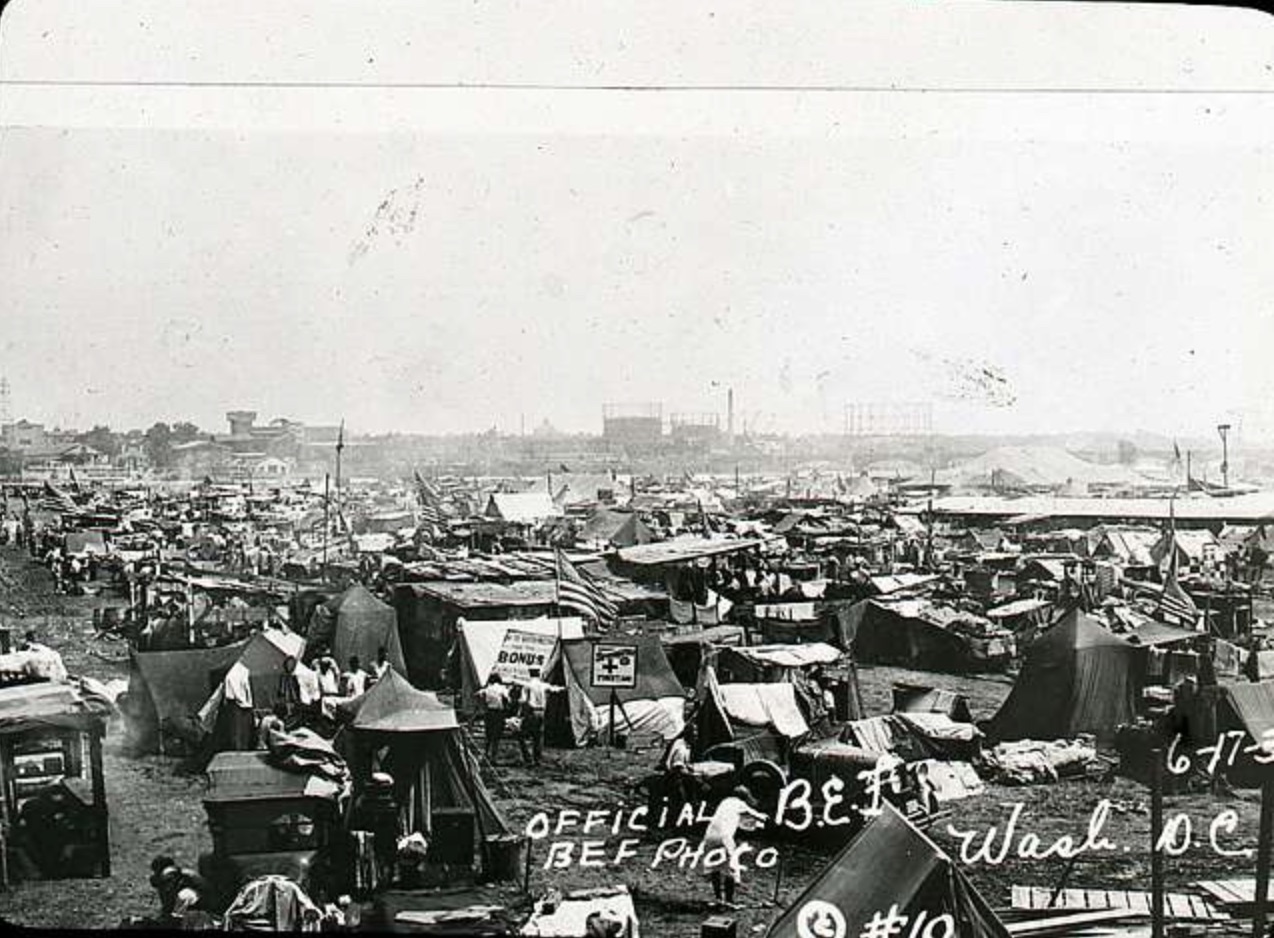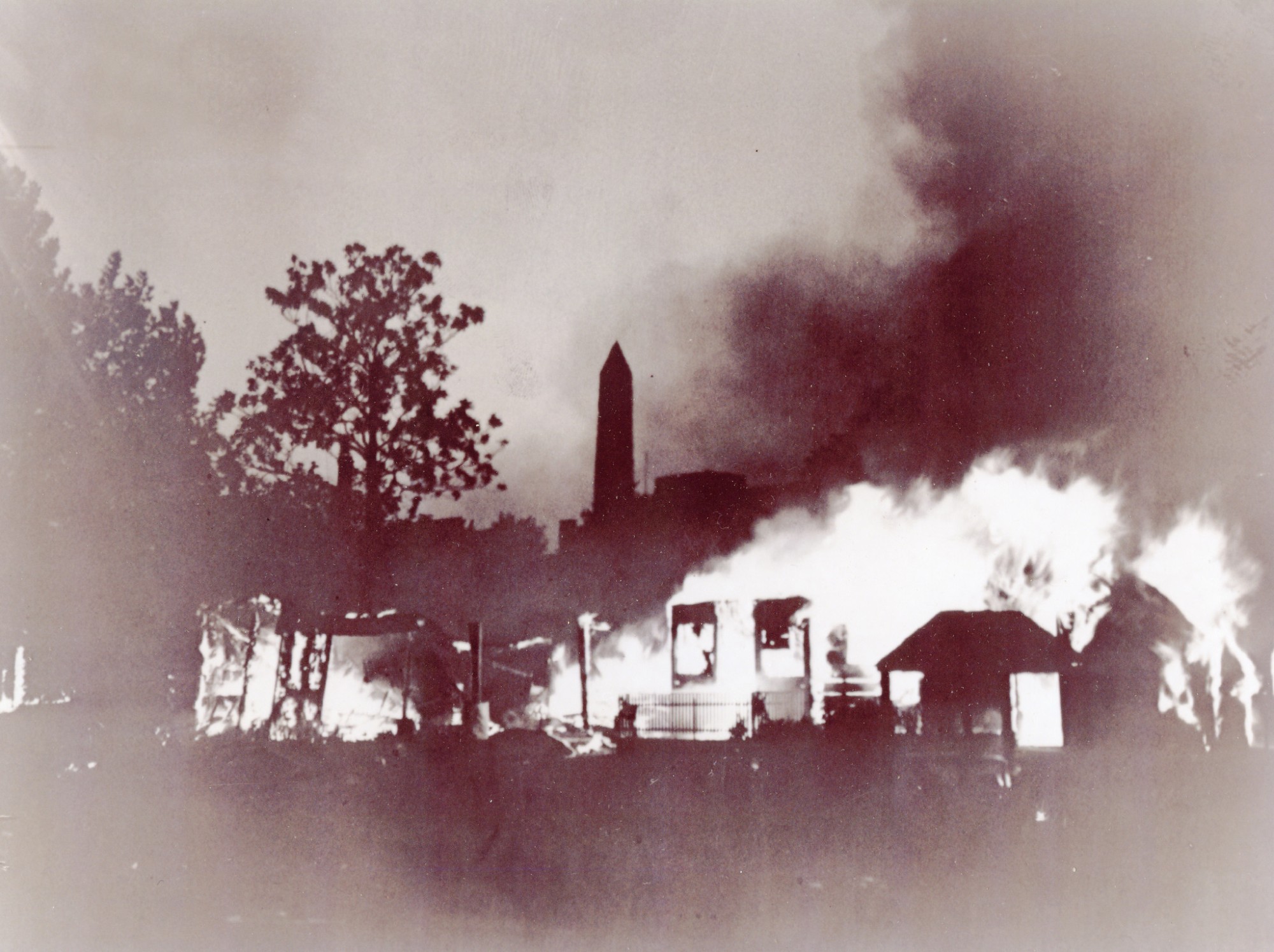U.S. News
How the ‘Bonus Army’ Changed Veteran Rights Forever
By Matt De Vlieger · July 27, 2024

What was the Bonus Army?
The Bonus Army was a group of approximately 43,000 World War I veterans, their families, and affiliated groups who marched to Washington, D.C., in the summer of 1932.
Main Demand
The veterans were demanding early payment of a bonus that had been promised to them by the government for their service in World War I, which was originally scheduled to be paid in 1945.
Context of the Protest
The march took place during the Great Depression, a period of severe economic hardship, high unemployment, and widespread poverty in the United States.
Key Figures
Walter W. Waters, a former sergeant, emerged as a prominent leader of the Bonus Army. He organized and led the veterans in their efforts to lobby Congress for the early payment of their bonuses.
The Encampment
The veterans set up a large, makeshift camp in Washington, D.C., known as a "Hooverville," after President Herbert Hoover. The camp was located on the Anacostia Flats, near the U.S. Capitol.On July 27, 1932, the D.C. police attempted to deliver eviction notices to the veterans, demanding that they vacate their encampments.

Government Response
President Hoover initially allowed the veterans to peacefully protest, but as the demonstration dragged on, he ordered the U.S. Army to forcibly remove the protesters.Small clashes between the police and veterans started to break out on July 27, setting the stage for the larger conflict that would erupt the following day.

Military Action
On July 28, 1932, the Bonus Army conflict reached its peak. Under the command of General Douglas MacArthur, along with Major Dwight D. Eisenhower and Major George S. Patton, troops used tear gas, cavalry, and tanks to evict the veterans from their makeshift camps.
Outcome
The eviction was violent, resulting in the destruction of the veterans' camp and several injuries. Two veterans were killed during the conflict.
Public Reaction
The brutal eviction of the Bonus Army was widely condemned by the public and media. It contributed to President Hoover's unpopularity and was a factor in his defeat in the 1932 presidential election.
Veterans' Advocacy
The experiences of the Bonus Army helped galvanize veterans' groups and advocates to push for better benefits and support systems for veterans.
A New Deal for Veterans
Initially, President Roosevelt was opposed to the early payment of the bonuses. However, he did implement some relief measures for veterans, such as offering them jobs in the Civilian Conservation Corps (CCC).
World War II and the G.I. Bill
During World War II, the lessons learned from the Bonus Army conflict and the economic struggles of World War I veterans influenced policymakers. There was a strong desire to avoid similar issues for returning World War II veterans.
Legislative Action
In 1944, Congress passed the Servicemen's Readjustment Act, commonly known as the G.I. Bil which provided comprehensive benefits to World War II veterans, including education, housing, and unemployment assistance.
Purpose of the G.I. Bill
The G.I. Bill aimed to help veterans reintegrate into civilian life, avoid mass unemployment, and provide economic opportunities, thus addressing many of the issues that had plagued the Bonus Army veterans.
Legacy
The G.I. Bill is considered one of the most significant pieces of social legislation in U.S. history. It helped millions of veterans achieve higher education, home ownership, and economic stability, profoundly shaping the post-war American economy and society.
Continued Relevance
The story of the Bonus Army and the subsequent creation of the G.I. Bill underscore the importance of learning from past mistakes and ensuring that veterans receive the support and recognition they deserve.
Relevance to Today
The Bonus Army conflict highlights issues of veterans' rights, government accountability, and the social safety net. DC Public Library